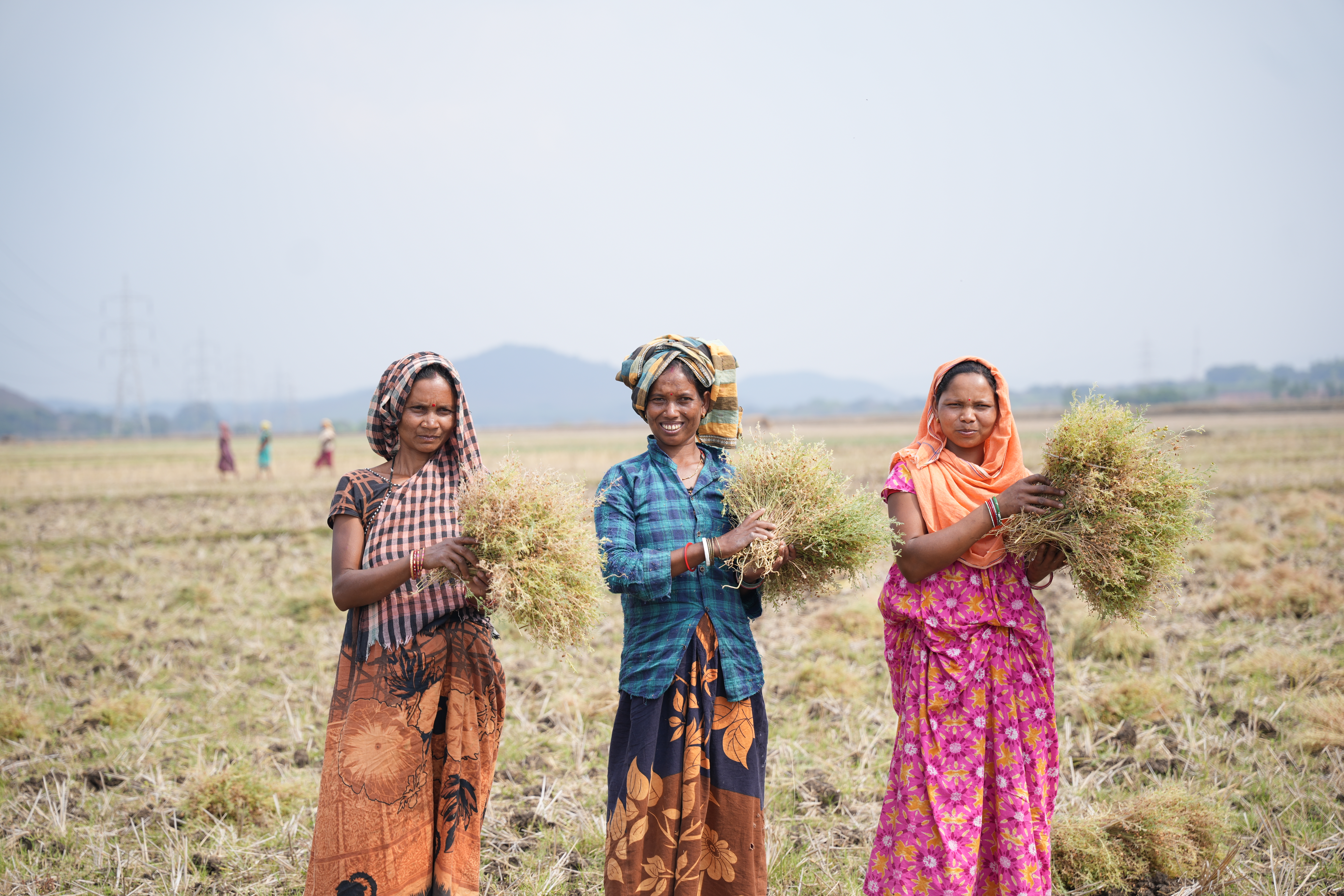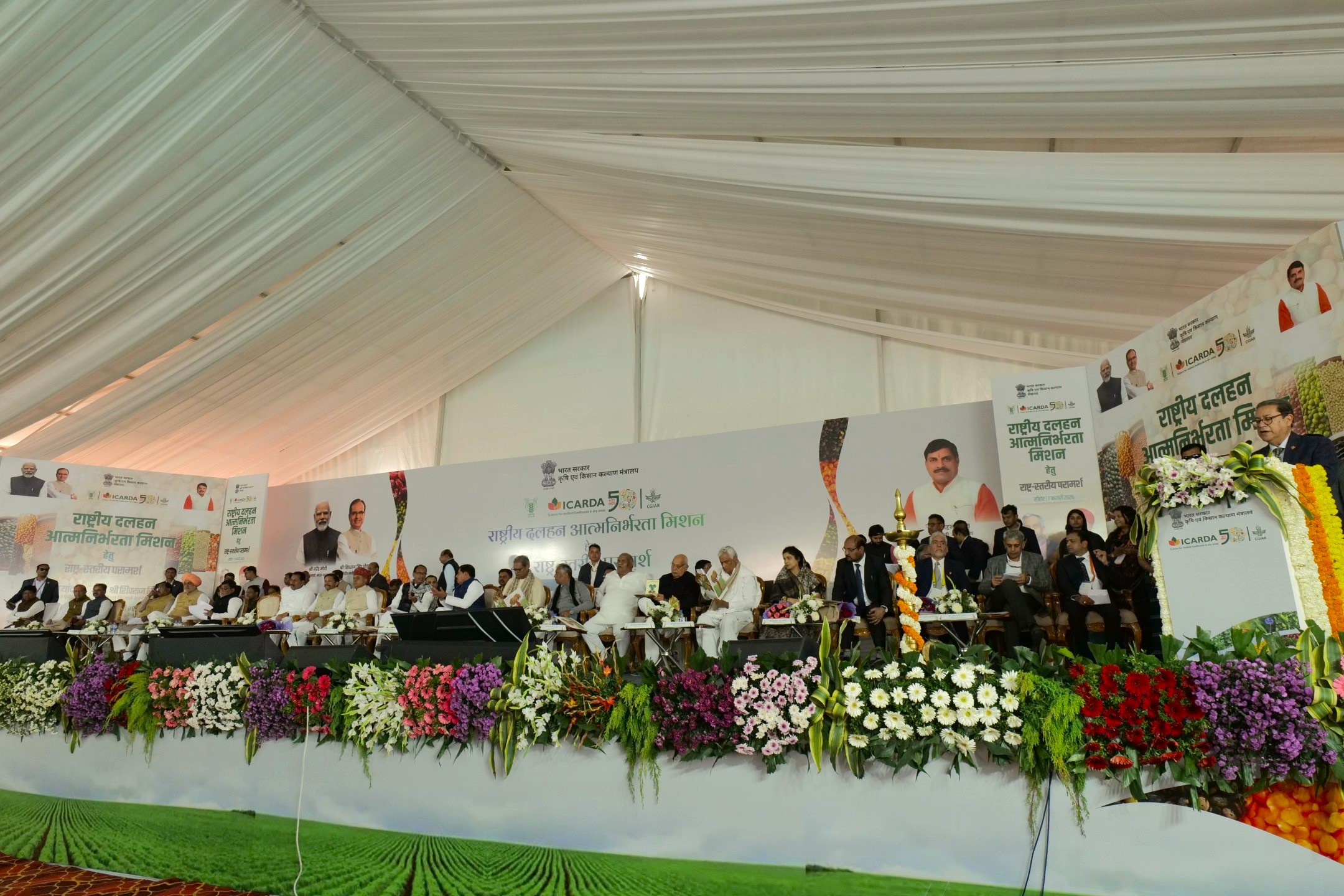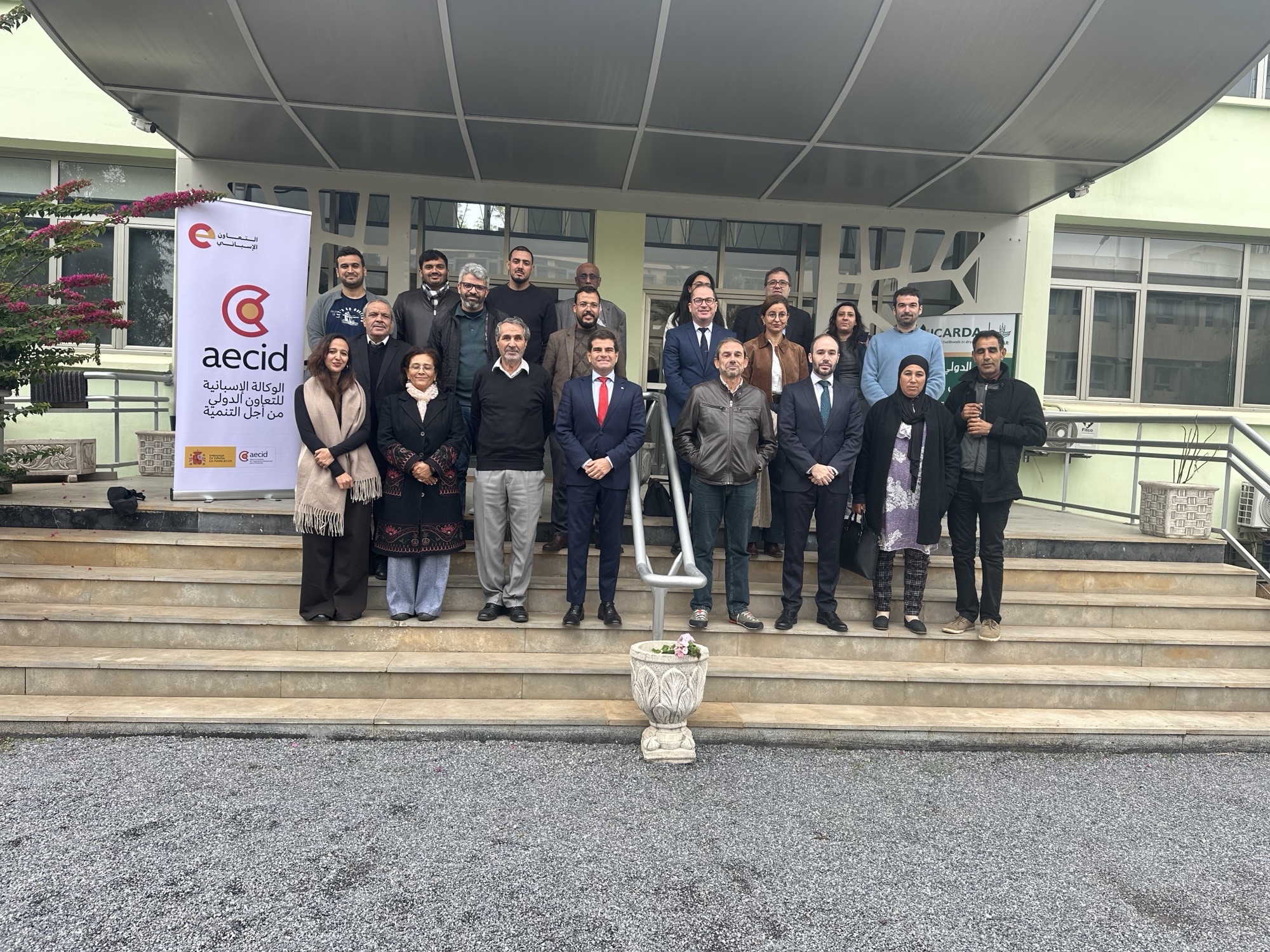Sudan and Ethiopia boost wheat production through the TAAT Wheat Compact project
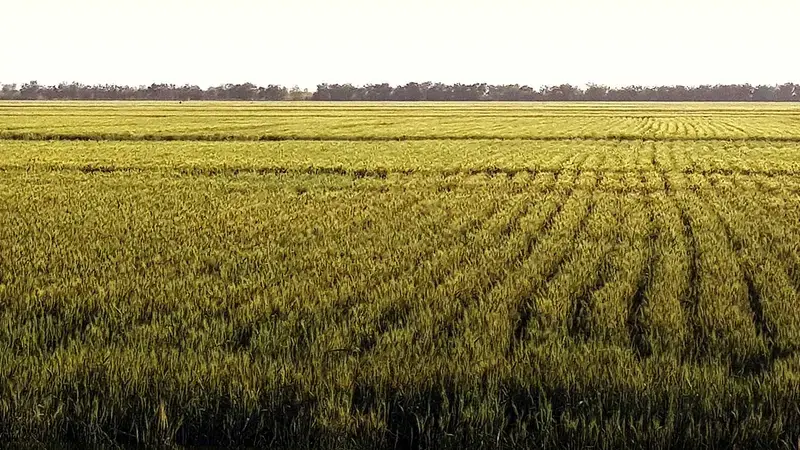
The ICARDA-coordinated Technologies for African Agricultural Transformation (TAAT) wheat compact project, funded by the African Development Bank (AfDB), aims to strengthen production capacity and seed systems, and disseminate improved climate-resilient wheat varieties, while simultaneously introducing innovative production technologies and integrated crop management practices (water-saving technologies) in order to increase Africa’s agricultural productivity of staple crops.
A unique aspect of TAAT is the use of innovation platforms, which are instrumental in creating networks and partnerships, bringing together committed and newly interested stakeholders including the private sector, at vertical and horizontal level. Through linkage, information sharing, and debate, innovation platforms promote new technologies, raise the capacity of farmers, and link them to input and output markets at a strategic and operational level, bringing all stakeholders along the value chain together.
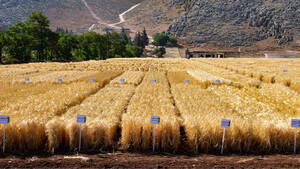
High-level visits by country and regional government officials, along with independent stakeholders from public and private agricultural sectors to TAAT innovation platform sites in Ethiopia and Sudan, have shown substantial development in wheat production practices, adoption of new technology and methods, and integration of stakeholders at all levels.
Image shows Dr Izzat Tahir, TAAT Wheat Compact Coordinator in Sudan outlining results to H.E Mr Ahmed Turkawi Undersecretary of the Sudan Ministry of Agriculture and Natural Resources and Ms Jennifer Blanke, Vice President AfDB.
Sudan produces about 24 percent of its total demand of about 2.2 million tons of wheat and the deficit is imported at the average cost of US$ 450 million annually, while Ethiopia imports 1.7 million tons of its seven-million-ton consumption at a cost of around USD $700 million. Both countries expect their wheat consumption to increase substantially in the next five years, further widening their wheat deficits. Both, as with the continent as a whole, have vast potential to increase their wheat production.
Located between the two Nile Rivers, occupying about 1.0 million ha and inhabited by close to 1.2 million people, Gezira State is the breadbasket of Sudan, producing about 60 percent of commercial wheat grain in the country. Yet for several years, production of certified wheat seed in Sudan declined progressively. This trend is now being reversed. The TAAT innovation platforms involve key stakeholders at all levels such as the Gezira Scheme, Agricultural Bank of Sudan, private seed companies, development agencies, agro-industry, and farmer associations. The number of stakeholders continues to rise as new private seed companies connected through TAAT are sensing commercial potential.
The results are remarkable. Over 1260 ha of new basic seed is under production and will be further multiplied to certified seed next season, ensuring wider accessibility of quality seed. In 2018/19, a total of about 29,965 tons of certified and quality seed was produced and distributed, covering an estimated total area of 299,650 hectares - close to the entire wheat area in the country. If all goes well, the expected production of certified wheat seed in 2020 will be 76,000 tons, engendering the planting of half a million ha.
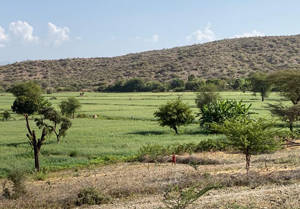
Through TAAT in Ethiopia, new frontiers in wheat production have opened up by utilizing climate-resilient, high yielding varieties, bred and introduced by ICARDA, to grow crops in traditional rainfed
highland areas and heat tolerant high yielding wheat varieties to expand wheat production in irrigated lowland areas.
The innovation platforms helped the Government of Ethiopia establish a high-level committee among its Agricultural, Finance, Trade and Industry, and Water and Irrigation Ministries, and expanded the wider adoption of new methodologies, significantly improving water resource management. More women and youths were reached through the establishment of business-centers that promote rural entrepreneurship, and access to credit facilities for inputs (seed, fertilizers, and agrochemicals) for both smallholder and large-scale farmers was improved.
About 21,000 ha of wheat is now being cultivated under irrigation in three river basins on programs spearheaded by the Government of Ethiopia. Moreover, new partnerships with large-scale cotton farms were established and expectations are for a bumper crop harvest with yields expected to reach 6 tons ha-1. At an estimated average yield of 4 tons ha-1, a total wheat production of 840,000 tons is expected, which, at the projected conservative price of US$ 250, can save Ethiopia about US$ 210 million.
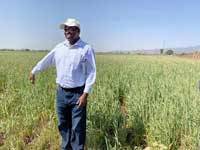
“The TAAT wheat compact project has dramatically ramped up production of certified seed of heat-tolerant wheat varieties and putting these high productivity wheat seeds into the hands of millions of smallholder farmers in Ethiopia, Sudan and across other countries where the project is being implemented. The African Development Bank believes that this is a real game-changer for Africa; expanded production will relieve the continent of an ever-increasing import bill of nearly USD $10 billion per annum.” – Dr. Martin Fregene, Director, Agriculture and Agro-Industry, African Development Bank
Scaled up, TAAT offers the whole continent a way out of its spiraling wheat gap. Yet while it clearly proves its potential, challenges remain. The development of climate and heat tolerant varieties must continue to be funded; mechanization must be encouraged especially in low-adoption areas; financial support from governments remains crucial; biotic stresses (disease, pests, and weeds) need to be overcome, as well as abiotic stresses (drought, heat and soil salinity/acidity).
Above all, ICARDA will continue to encourage a people-centered approach. Further inclusion of women and youths, who in some cases make up 42 percent of the stakeholders, will be stimulated along with that of farmers associations. This will hand management and ownership of the innovation platforms, and therefore the wheat production gains, to the stakeholders themselves, providing the key incentive to scale up across Africa and beyond.

